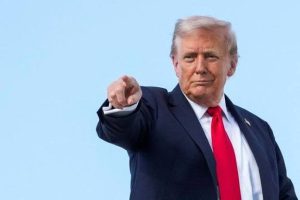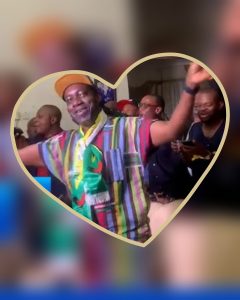By peace Udugba
Renowned Nigerian playwright and Nobel Laureate, Professor Wole Soyinka, has disclosed that the United States government has permanently revoked his visa.
Speaking at a media briefing held at Freedom Park, Lagos, on Tuesday, Professor Soyinka explained that the revocation followed his refusal to honour an invitation from the U.S. Consulate for a revalidation interview.
Soyinka recalled that he had previously torn up his U.S. green card in protest against the policies of former President Donald Trump, citing the administration’s divisive rhetoric, discriminatory actions, and rising concerns over racism. Since then, he had relied on a B1/B2 visa for travel to the United States.
According to the Nobel Laureate, the consulate requested that he appear for an interview to revalidate his visa, which he chose to ignore. Then, on October 23, 2025, he received formal notification from the consulate, asking him to come in so that the visa could be officially stamped as “cancelled permanently.”
Professor Soyinka, however, made it clear that he would not comply.
If they wish to cancel it, that is their business. I will not go there to help them do it,” he said.
The author’s decision reflects his consistent stance on matters of principle, especially concerning justice, equity, and personal dignity.
Renowned Nigerian playwright and Nobel Laureate, Professor Wole Soyinka, has confirmed that the United States government has permanently revoked his visa, following his refusal to attend a revalidation interview at the U.S. Consulate.
Speaking at a media briefing held at Freedom Park in Lagos on Tuesday, Soyinka explained that the decision came after he ignored several invitations from the consulate to appear in person. The final letter, dated October 23, 2025, informed him that his visa would now be officially stamped “cancelled permanently.”
Soyinka, however, maintained that he would not honour the request, stating, “If they wish to cancel it, that is their business. I will not go there to help them do it.”
Despite the revocation, he expressed no bitterness and said he would not reciprocate the action.
“I will continue to welcome any American to my home if they have anything legitimate to do with me,” he affirmed.
The Nobel Laureate, who famously tore up his U.S. green card in 2016 in protest against former President Donald Trump’s divisive rhetoric, had since relied on a B1/B2 visa to travel to the United States.
Soyinka recounted two past encounters with U.S. border authorities, which he described as minor incidents. The first occurred many years ago at an American airport when he was fined $25 for forgetting to declare chilli peppers he had carried in his pocket from London.
“The officials were just doing their job,” he said with a laugh. “It was a harmless mistake.”
The second incident, he recalled, took place in the 1970s at Chicago Airport, where he had challenged a racist remark made by an immigration officer. The situation escalated until the intervention of Chief Emeka Anyaoku, who would later become the Secretary-General of the Commonwealth.
Soyinka said neither incident constituted a criminal record and insisted they were mere misunderstandings.
“I do not think those two incidents are enough to classify me as having a criminal record in the United States,” he said.
Reflecting on the broader implications, Soyinka criticised the shift in U.S. policies under Trump’s administration and reiterated the importance of standing against racism and injustice.
“Silence in the face of prejudice is as dangerous as the act itself,” he said.







